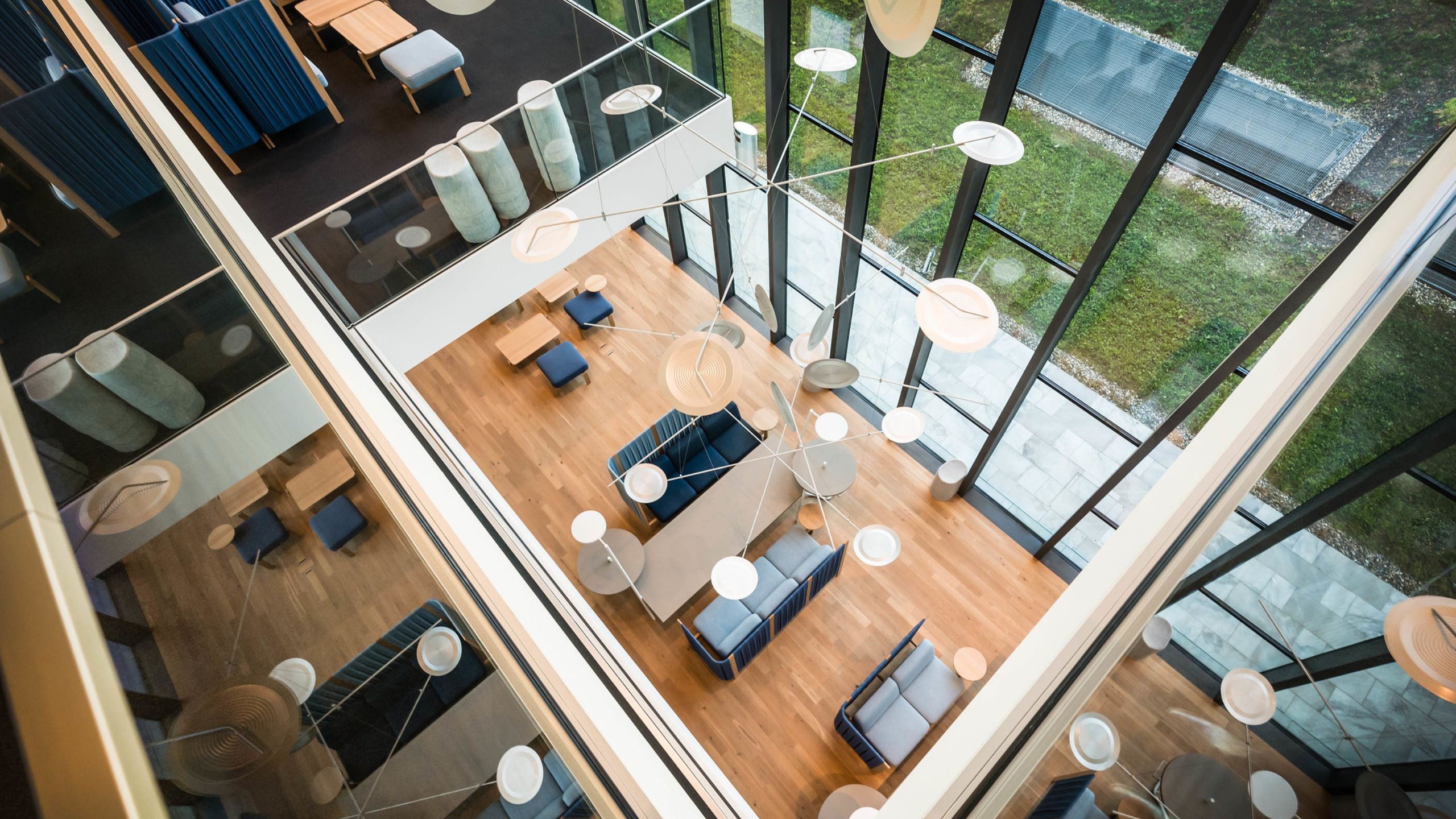
Learning Resources & Educational Insights

Embark in a Learning Journey
With the right information, data, and tools, education institutions can uncover insights that can help them strengthen their competitive edge and drive growth.
By providing education institutions with the tools and information they need, we aim to help them make informed decisions and optimize their operations.
Education Industry Statistics
Thus, we are examining key global education statistics to help students and institutions alike adjust to a more digital and flexible learning landscape.
COVID-19
Learning losses from missed in-person schooling amounting to 2 trillion hours of lost learning.
***
Globally, 40% of countries trained three quarters or more of teachers on distance learning methods including various forms of ICT
***
41% of lower income countries reduced their spending on education after the onset of the COVID-19 pandemic in 2020, with an average decline in spending of 13.5%.
Gender Equality
One additional school year can increase a woman's earnings by 10% to 20%.
***
Human capital wealth could increase by almost 22% globally with gender equality in earnings.
***
129 million girls worldwide are out of school.
***
Only 35% of all university students enrolled in STEM-related fields are women.
Quality Teaching
Learning losses from missed in-person schooling amounting to 2 trillion hours of lost learning.
***
Globally, 40% of countries trained three quarters or more of teachers on distance learning methods including various forms of ICT
***
41% of lower income countries reduced their spending on education after the onset of the COVID-19 pandemic in 2020, with an average decline in spending of 13.5%.
Inclusive Education
The literacy rate for adults with disabilities is 3%. For women with disabilities the literacy rate is even lower, at 1%.
***
In low and lower-middle income countries, around 40% of children with disabilities are out of school at primary level and 55% at lower secondary level.
Domestic Financing
Government per capita spending on education was on average nearly 150 times higher in high-income countries than in low-income countries.
***
One in three countries spend less than 4% of their GDP and less than 15% of their budget on education.
Top Education Trends
The world is changing rapidly, and so must our approach to education. We have been accustomed to spending a lot of our early years in a classroom, but the quick rate of evolution requires us to adopt life-long learning and various technologies. Over the next year and beyond, these are the most significant trends which will shape the transformation of education.
Artificial Intelligence
Artificial Intelligence (AI) can have a significant impact on the classroom, providing students and teachers with virtual assistants to help manage their time, personalized learning experiences, and the ability to power remote and online learning systems. It can also facilitate language translation in educational settings where students speak different languages. UNESCO believes that AI has the potential to address global educational inequalities and improve access to knowledge around the world. However, it also comes with its own set of challenges that must be addressed to ensure the technology is deployed fairly and doesn't worsen existing inequalities.
Remote, Online, & Hybrid Learning
Learning that takes place remotely, online, and through hybrid formats is becoming increasingly common in educational institutions, allowing students to access educational materials and experiences regardless of their physical location. This makes education more accessible to those living in isolated or rural areas, while also providing an opportunity for those with busy lives to keep their skills up-to-date. The rapid pace of technological advancement has made it necessary for people to frequently update their skills, leading to the emergence of new forms of learning such as micro-learning or nano-learning.
ARTICLE: E-learning vs. blended learning
Soft Skills & STEM
In the near future, STEM education will increasingly incorporate soft skills such as communication, teamwork, creative thinking, interpersonal problem-solving, relationship management, and conflict resolution. These human skills are invaluable to employers and industry, and are unlikely to be replaced by machines any time soon. As such, organizations will need to measure and assess these skills to ensure their success. As a result, STEM education will place greater emphasis on soft skills and will make efforts to measure and assess their organizational capabilities in this area.
Vocational & Technical Education
High schools are expected to allocate more of their resources to prepare students for alternative paths than the usual college courses. Vocational and technical courses that provide a wide range of skills are set to become more prevalent as schools collaborate with employers to create new solutions to address the current skills gap. Today still, schools prioritize the minority group of high school graduates that go on to study at college at the expense of those who are opting for apprenticeships, on-the-job training and other non-traditional methods of furthering their education. As the labor market continues to move away from only requiring college-educated individuals and towards seeking people with the required skills, schools must adapt accordingly.
ARTICLE: The importance of vocational training for career development
Virtual & Augmented Reality
VR and AR are two forms of extended reality (XR) that are becoming increasingly important within educational systems. With VR, users can enter a virtual world and experience a variety of "experiences" such as stepping back in time and experiencing history or training for dangerous tasks. It can also be used for virtual classrooms and healthcare training. AR requires a device but is different as it superimposes computer-generated images onto what the user is actually seeing, which can provide real-time information. AR textbooks are becoming available that contain images and models that "come alive" when viewed through a smartphone camera, and museums and sites of interest are adding AR to create more immersive education opportunities.
ARTICLE: The intersection of education and technology
Our Resources
Informed decision-making is the cornerstone of any successful Education Institution strategy. This is especially true in today’s world, where every day institutions like yours must make countless, crucial decisions and often under great pressure and uncertainty.
We have put together a range of resources and toolkits to help education institutions succeed in their journey towards excellence.
TOOLKIT: Invest in Education
From Marketing & Recruitment to Program & Curriculum, get the EHL Education Consulting expert resources to help you achieve Education Excellence.
SELF-ASSESSMENT: Student-Centric Learning
Increasing competitive alternatives to traditional education, growing student expectations regarding personalization and employability: student centricity will be the key differentiator for successful education offers in 2030.
SELF-ASSESSMENT: Integrative Learning
Changes in learning behaviors brought by technology and growing student expectations regarding personalization and employability force institutions to evolve towards inclusive educational environments. Is your institution ready?
CASE STUDIES: from EHL's Network of Schools
We have helped them set new benchmarks and grow their business with tailor-made services. Browse some of our clients and learn more about the projects we brought to life together.
TOOLKIT: Digital Transformation for Education
For educational organizations, digital adoption can help institutions become more competitive. Make sure that you are allocating your budget to the efforts that provide the best ROI!
TOOLKIT: Invest in Education
Facilitating public-private cooperation in the education sector to revive cities and regions is an effective way to foster positive effects on employability and the local communities for truly impactful investments.
Our Insights

Want to explore further one of the above Education topics?
We would be happy to assist you.
Sources:
UNICEF, 2022 - World Teachers’ Day 2021 Fact Sheet - Education Finance Watch 2022 - Education Data Highlights - World Bank, Returns to Investment in Education (2002) - Unrealized potential: the high cost of gender inequality in earnings, p.7 - UNICEF - Cracking the code: girls' and women's education in science, technology, engineering and mathematics (STEM), UNESCO, 2017, p.11 - UNGEI. Still left behind: Pathways to inclusive education for girls with disabilities, p.12 - UNICEF, Towards Inclusive Education. The impact of disability on school attendance in lower-income countries. 2016 - UIS factsheet #39, October 2016, p.1 - EFA GMR 2015, p.122 - Education Finance Watch 2022. World Bank, GEMR, UIS -
© 2026 EHL Holding SA, Switzerland. All rights reserved.